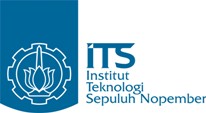The Effect of Heating of B20 Fuel to Combustion Characteristic on the Diesel Engine Based on Experiment
Abstract
Keywords
Full Text:
PDFReferences
Kementrian ESDM. "Keputusan Menteri Energi Dan Sumber Daya Mineral Republik Indonesia Nomor 1936 K/10/Mem/2018". Kementrian ESDM Republik Indonesia. (2018)
Kuncahyo, P., Fathallah. A,Z,M., & Semin (2013). JURNAL TEKNIK POMITS vol.2 (1) (2013)
Viesturs, Dainis and Ligita Melece. “Advantages and Disadvantages of Biofuels: Observations in Latvia”. Latvia University of Agriculture (2014)
Siagian, A., Silaban, M. Jurnal Teknik Mesin Petra. Vol.14 (1). (2013)
Rabl, S., Davies, T.J., McDougall, A.P., & R.F Cracknell. Proceedings of the Combustion Institute Vol 35 (3). (2014).
Qi, D. e. Energy Conversion and Management 51, 2985-2992. (2010).
Tesfa, B.et al. RE&PGJ, Vol.1, No.9. (2011).
Lasocki, J. Proceedings of the Institute Of Vehicles 5 (109).(2016).
Bakar, R.A., Semin., Ismail, A.R. American Journal of Applied Sciences 5 (3): 197-202, (2008)
Bakar, R.A., Semin., Abdul, R., Ismail A. American Journal of Applied Sciences 5 (2): 110-116. (2008)
Semin., Beny Cahyono., Amiadji., & R.A Bakar. Procedia Earth and Planetary Science 14(14):101-109. (2014)
Sudarmanta, B., Rachimoellah, M., Winardi, S., Sungkono, D. RSCE 7. (2007).
Bin-Mahfouz, A., Mahmoud, K., & Mourad, M. AASCIT Vol. 5,(3):42-48. (2018).
DOI: http://dx.doi.org/10.12962%2Fj25481479.v4i4.5654
Refbacks
- There are currently no refbacks.
 |  |  |  |
| |  |  |
|
|
|
|
|
P-ISSN: 2541-5972
E-ISSN: 2548-1479
IJMEIR journal published by Department of Marine Engineering, Faculty of Marine Technology, Institut Teknologi Sepuluh Nopember Surabaya Indonesia under licenced Creative Commons Attribution-ShareAlike 4.0 International Licence. Based on https://iptek.its.ac.id/index.php/ijmeir/


1.png)
